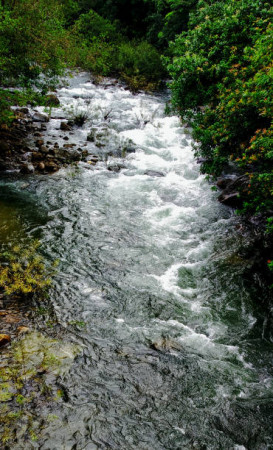
Nilambur
Package
7000 to 12000
7000 to 12000
Duration
2 to 4 Days
2 to 4 Days
Best time to visit
Nov-Feb
Nov-Feb
Theme
Hill Station, Wildlife
Hill Station, Wildlife
Nilambur Travel Guide
Nilambur, located in the Malappuram district of Kerala, India, is a serene town known for its rich historical significance, lush greenery, and cultural heritage. Famous for its teak plantations and the oldest teak plantation in the world, Nilambur is a paradise for nature lovers and history enthusiasts alike. The town is also known for its unique blend of traditional Kerala architecture and colonial influences, making it a must-visit destination for travelers seeking a peaceful retreat.Top Attractions in Nilambur
- Teak Museum
- Adyanpara Waterfalls
- Nilambur Kovilakam
- Conolly's Plot
- Vaniyambalam Temple
Nilambur is Famous for
Teak plantations and the oldest teak plantation in the world.Top Attractions in Nilambur
- Teak Museum
- Adyanpara Waterfalls
- Nilambur Kovilakam
- Conolly's Plot
- Vaniyambalam Temple
What's Great about Travelling to Nilambur?
- Peaceful and tranquil atmosphere
- Rich cultural heritage
- Opportunity to explore lush greenery
What's Not So Great about Travelling to Nilambur?
- Limited nightlife and entertainment options
- Hot and humid weather during certain seasons
- Language barrier for non-Malayalam speakers
Travel Tips for Nilambur
- Check visa requirements before traveling
- Book accommodations in advance, especially during peak seasons
- Respect local customs and traditions
Important Nilambur trip information
- Ideal Duration: 2-3 days
- Best Time to Visit: October to March
- Nearby Airports and Railway Stations: Calicut International Airport and Nilambur Road Railway Station
Top 11 Places to visit in Nilambur
FAQ's on Nilambur
Q1: What is the best time to visit Nilambur?
The best time to visit Nilambur is during the winter months from November to February when the weather is pleasant and ideal for exploring the lush greenery and natural beauty of the region. This period also coincides with the famous Nilambur Teak Plantations Festival, offering visitors a chance to experience local culture and traditions.
Q2: Do I need a visa to travel to Nilambur?
Most visitors to Nilambur will need a valid Indian visa to enter the country. However, travelers from certain countries may be eligible for visa-on-arrival or e-visa facilities. It is advisable to check with the respective Indian embassy or consulate for the most up-to-date visa requirements and application procedures.
Q3: What are the must-visit attractions in Nilambur?
Nilambur is renowned for its Teak Museum, Nilambur Kovilakam, Adyanpara Waterfalls, Conolly's Plot, and the famous Teak Plantations. Nature lovers can explore the beauty of the Nedumkayam Rainforest, while history enthusiasts can visit the ancient temples and historical sites in the region.
Q4: Is Nilambur a safe place to travel?
Nilambur is generally a safe destination for travelers. However, it is recommended to take standard precautions like avoiding isolated areas at night and safeguarding personal belongings. Travelers should also be cautious while trekking or exploring remote areas.
Q5: What is the local currency in Nilambur and can I use credit cards?
The local currency in Nilambur is the Indian Rupee (INR). While credit cards are accepted in some hotels, restaurants, and larger establishments, it is advisable to carry cash for smaller transactions. ATMs are also available in the town for convenient access to money.
Q6: What is the local cuisine like in Nilambur?
Nilambur offers a delectable range of traditional Kerala cuisine, including dishes like Puttu, Appam, Malabar Biryani, and Fish Moilee. Vegetarians can enjoy dishes like Avial and Thoran. Don't miss out on trying local snacks like Banana Chips and Unnakaya dessert made from plantains.
Q7: What transportation options are available in Nilambur?
Transportation options in Nilambur include buses, taxis, and auto-rickshaws for local travel. Renting a car or hiring a driver is also a convenient way to explore the region. Additionally, the Nilambur Road Railway Station provides train connectivity to major cities in India.
Q8: Are there any cultural norms or etiquette I should be aware of when visiting Nilambur?
When visiting Nilambur, it is important to respect local customs and traditions. Dress modestly, especially when visiting religious sites. Always remove your footwear before entering homes or places of worship. Greeting people with a "Namaste" and showing respect to elders are considered courteous gestures in the local culture.
Q9: I am a travel agent. How can I buy travel leads of Nilambur?
Register yourself as a travel agent at agents.tripclap.com and then you can buy travel leads to Nilambur once your account is approved. For more details contact our support team at +91-8069186564 or support@tripclap.com
